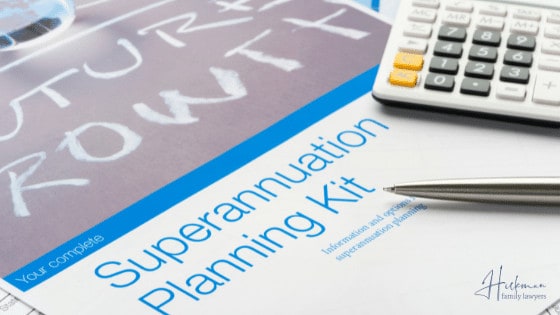When you get divorced, all your financial assets are taken into consideration and usually split on a mutually agreed basis, or by the Family Court if no mutual agreement can be reached.
This can include both parties’ superannuation, but what about if you are not married, and are in a de facto relationship instead?
We’ve put together everything you need to know about ending a de facto relationship and superannuation.
What is a de facto relationship?
Firstly, it’s important to understand what a de facto relationship is.
A de facto relationship is legally defined as a relationship between two people, regardless of gender, who live together as a couple, on a genuine domestic basis, for a period of two years or more, but are not married.
What does ‘genuine domestic basis’ mean?
This term is used to indicate that both parties are mutually committed to share a life and future together as a couple.
Examples of such a relationship will not only lie in the sharing of a residence, but also in the financial interdependence on each other, and the romantic nature of the relationship.
For instance, sharing a dwelling and costs thereof with a room-mate is not considered as “genuine domestic basis”, and therefore not classified as a de facto relationship.
Does a de facto relationship need to be registered?
The quick answer is no, a de facto relationship does not need to be registered, but it would make a complex situation far simpler if it were registered.
The Family Court is authorised to order a division of any property, which includes superannuation, regardless under whose name it is registered, if the relationship was registered under a prescribed law of a particular state or territory.
Am I entitled to make a property claim if my de facto relationship ends?
You certainly can. When it comes to division of property, after a relationship breakdown, the same laws generally apply to both de facto and married couples. Australian Family Law demands that the splitting of assets be just and equitable, but that does not necessarily mean everything is split straight down the middle.
Property can include all assets movable or immovable, cash on hand, investments, etc, and all debt held by both partners, regardless of whose name in which they are registered.
There are numerous factors that need to be considered, such as the period of the relationship, who contributed what, the needs of both partners and the care and upbringing of children.
Can my superannuation be split if my de facto relationship ends?
In most states in Australia, superannuation is considered an asset and therefore can be split when a marriage or a de facto relationship ends.
It does, however, differ somewhat to other assets, by the fact that it has to remain as superannuation, until the party who has been allocated the superannuation is eligible to have it paid to them. Neither partner may access the super, until retirement or they become eligible for some other reason. There may be extremely rare cases when they may be paid out prior to maturity.
The splitting of superannuation laws apply to all Australian states, except Western Australia, where we administer separate family law legislation regarding de facto relationships.

How is superannuation treated in a de facto relationship breakdown in Western Australia?
In Western Australia, de facto partners are not currently able to split their superannuation, but instead, the law can take it into account by making adjustments when dividing all other properties between them.
There has been discussion about the law changing in Western Australia, to allow de facto superannuation splitting. However, that has not happened yet.
Once the fund(s) are evaluated, they can be considered against other assets, while the actual super(s) remain in the name(s) of the original holders.
Evaluating superannuation funds can be an extremely complex matter and professional legal and financial advice should always be sought. If the superannuation is a self-managed super fund, (SMSF) the value of the fund must be determined by an accountant or an actuary.
Want to find out more about ending a de facto relationship and superannuation? Get in touch with our trusted family lawyers in Perth at Hickman Family Lawyers.
We offer free 15-minute consultations via phone where you can find out more about how we can help you and what options you have when it comes to separation and divorce.




